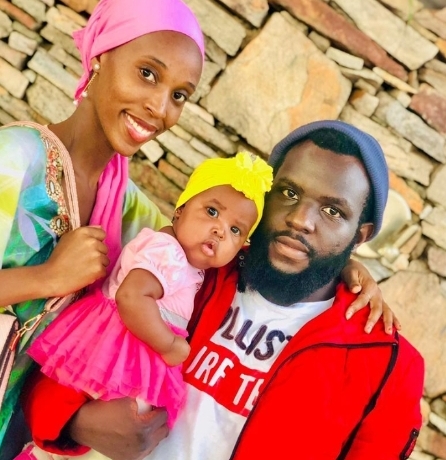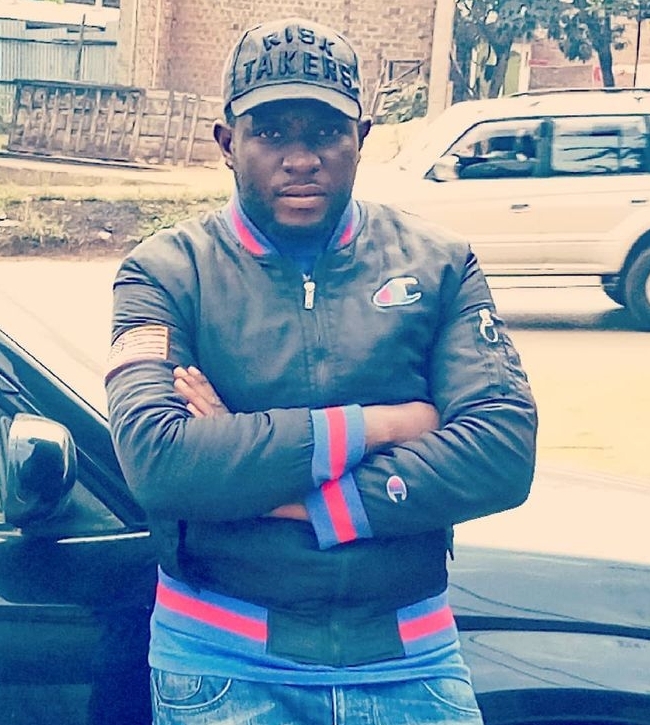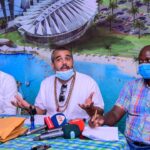In the heart of Kampala, Uganda, during a time of political unrest and social upheaval, the lives of many were changed forever. Among them was a young man, Saul Male, and his wife, Nasuuna Aisha, whose fates became inextricably linked with a dramatic moment in Uganda’s recent history. It was 2018, and the streets of Kampala were boiling with tension, as protests against the Over-The-Top (OTT) tax on data usage erupted across the nation. What began as a demonstration against an unjust tax spiraled into a nightmare for this couple, as their involvement in a critical moment during the protests drew the ire of Uganda’s security apparatus.
What began as a demonstration against an unjust tax spiraled into a nightmare for this couple, as their involvement in a critical moment during the protests drew the ire of Uganda’s security apparatus.
The Protests and the OTT Tax
The 2018 protests in Uganda were triggered by the government’s decision to impose a tax on social media use and data consumption. This tax, which required citizens to pay a daily fee to access platforms like Facebook, WhatsApp, and Twitter, was widely perceived as a means to stifle freedom of expression and suppress the growing influence of social media on political discourse.
Opposition leaders, civil servants, and musicians were among the key figures leading the charge against this oppressive law. One of the most vocal critics of the tax was Robert Kyagulanyi, better known as Bobi Wine, a musician-turned-politician who had risen to become a symbol of hope for the country’s youth and disenfranchised citizens. Bobi Wine, representing the People Power Movement, was quickly becoming a formidable opponent to the long-standing regime of President Yoweri Museveni.
On a fateful day during the height of the protests, Bobi Wine, after escaping police confinement at his home in Magere, found himself at the center of Kampala’s chaotic streets. Having jumped the fence of his residence, he and his security officer, Achileo, sped off on a boda boda (motorbike) toward the city center. Upon arriving at Mini Price near Ben Kiwanuka Street, Bobi Wine climbed atop taxis, rallying the masses and speaking out against the unjust tax imposed by the government. The air was electric, as thousands of Ugandans, already frustrated with the oppressive rule, cheered on their leader.
However, the moment was short-lived.
As Bobi Wine energized the crowd, police and military forces descended upon the area, beating protesters with batons and deploying tear gas in an effort to disperse the demonstration. Sensing imminent danger, Bobi Wine was forced to flee once again, this time making a desperate run into Kiyembe, a busy area filled with small shops and arcades. There, he found himself cornered and vulnerable, with no clear way out.
The Fateful Encounter: Saul Male and Mugerwa
It was at this critical juncture that Saul Male and his friend Mugerwa stepped into history. Saul, a humble man working in one of the shops at Kiyembe, noticed the frenzied scene as Bobi Wine entered the arcade, trying to evade capture. Recognizing the opposition leader, Saul and Mugerwa acted quickly. They provided Bobi Wine with a jacket and a cap, helping him disguise himself and blend into the crowd. This quick thinking allowed Bobi Wine to escape unnoticed, avoiding certain arrest or worse at the hands of the security forces.
For Saul and Mugerwa, this act of kindness, born out of a desire to protect a man they admired, would prove to be the beginning of a nightmare.
The Repercussions Begin
In the days following Bobi Wine’s escape, Uganda’s security organs launched an intensive investigation into the events of the protest. It didn’t take long for them to discover that Saul and Mugerwa had played a role in helping the opposition leader elude capture. From that moment on, their lives were turned upside down.
Both men were targeted by state security agents in unofficial, unlawful operations. These weren’t typical arrests carried out by uniformed officers. Instead, they were abducted by gunmen in unmarked vehicles, commonly known as “drones,” and taken to undisclosed locations. There, they were interrogated about their involvement with Bobi Wine and their alleged connections to the National Unity Platform (NUP), the opposition political party led by Bobi Wine.
For weeks, Saul lived in constant fear. He couldn’t move freely at night, knowing that at any moment, he could be abducted again. Reporting to the police was not an option, as the very security agencies supposed to protect citizens were the ones tormenting him. His wife, Nasuuna Aisha, was also caught in the crosshairs, as the authorities began to pressure her in an attempt to extract more information.
A Devastating Blow: Nasuuna’s Ordeal
As months passed, Saul and Aisha tried to navigate the dangerous waters of their new reality. They hoped that by laying low, the storm would pass. But in the shadows, the state had not forgotten about them.
One Sunday night, while Saul had traveled to his village to collect food and charcoal to sell at the market, disaster struck. Aisha received a phone call from her mother-in-law, who warned her that something terrible had happened. Moments later, a van without license plates, one of the infamous drones, arrived, and Aisha was forcibly taken by unknown men. Her abductors, who claimed to be security operatives, interrogated her about Saul’s connection to Bobi Wine and another individual named Aiden Kaliisa.
Kaliisa was a well-known figure in opposition circles and had been Saul’s boxing manager before becoming a prominent NUP activist. He operated an influential Twitter account, where he regularly exposed government atrocities and raised awareness about human rights violations. His online activism made him a target of the regime, and now, by extension, Saul and Aisha were also ensnared in the government’s net.
In the interrogation, Aisha was subjected to unimaginable horrors. She later confided in Saul that two men had sexually harassed her during her captivity. Overcome with guilt, Saul blamed himself for her suffering, believing that it all began with his decision to help Bobi Wine. His mental health began to deteriorate, as the weight of what had happened to his wife and the pressure from the authorities consumed him.
Despite her ordeal, Aisha did not tell her mother about the assault, fearing the shame and stigma it might bring. Instead, she and Saul secretly sought medical attention, undergoing tests, including one for HIV, which mercifully came back negative. But the emotional scars of that night would remain with them both forever.
The Cycle of Fear Continues
Just when Saul thought things couldn’t get worse, his own nightmare resumed. The morning after Aisha’s abduction, while at the hospital attending to his wife, Saul was suddenly seized by three security operatives. They drugged him, threw him into a vehicle, and beat him as they demanded to know the whereabouts of Aiden Kaliisa. In a moment of fear for his life, Saul revealed the location of Kaliisa’s home, hoping that the information would buy him some time.
The operatives drove to Kaliisa’s residence, but instead of confronting him, they drove Saul six kilometers away from the house and dumped him along Mityana Road. They warned him not to tell Kaliisa or anyone else about the encounter. Limping from his injuries, Saul walked for three kilometers before finding a boda boda that took him back to the hospital.
As Aisha lay recovering from her trauma, Saul chose not to tell her what had happened to him, afraid that the burden of his own suffering would only worsen her fragile state. Instead, he bottled up his pain, knowing that his silence was a form of protection for his wife.
Aiden Kaliisa’s Escape and a Final Betrayal
Two days later, news broke that Aiden Kaliisa’s wife had been abducted by the same security operatives hunting for her husband. She was held for 14 days before being released, unable to provide any information about Aiden’s whereabouts. For Saul, this was the final blow of guilt, as he had inadvertently led the security agents to his friend’s home.
When Saul eventually made contact with Kaliisa, he confessed only parts of what had transpired, omitting his role in directing the agents to his house. By that time, Kaliisa had already fled to Kenya, crossing the border to escape the regime’s clutches. His parting advice to Saul was simple but chilling: “Leave the country.”
While Kaliisa managed to find safety, Saul remained trapped in a web of fear and uncertainty. He continued to receive threats, and the trauma of the past months haunted him relentlessly. He suffered from nightmares and overwhelming guilt, knowing that his actions, however unintentional, had contributed to the suffering of those around him.
Life After the Storm: A Fragile Peace
Today, Saul and Aisha are trying to rebuild their lives, though the shadow of the past looms large over them. They now have a daughter, a baby girl of 16 months, whom they adore. Yet, every day is a reminder of the precariousness of their existence. Saul lives in constant fear for his family’s safety, knowing that the same forces that tore their lives apart could return at any moment.
Despite everything, Saul finds solace in the fact that Aisha has forgiven him. Their love, forged in the crucible of adversity, has endured the worst that life has thrown at them. Together, they are raising their daughter in a country that feels increasingly hostile and dangerous.
The story of Saul and Aisha is a microcosm of the larger struggles facing many Ugandans under an oppressive regime. They are not alone in their suffering—countless others have been subjected to unlawful detentions, torture, and harassment simply for daring to speak out.
![]()
























